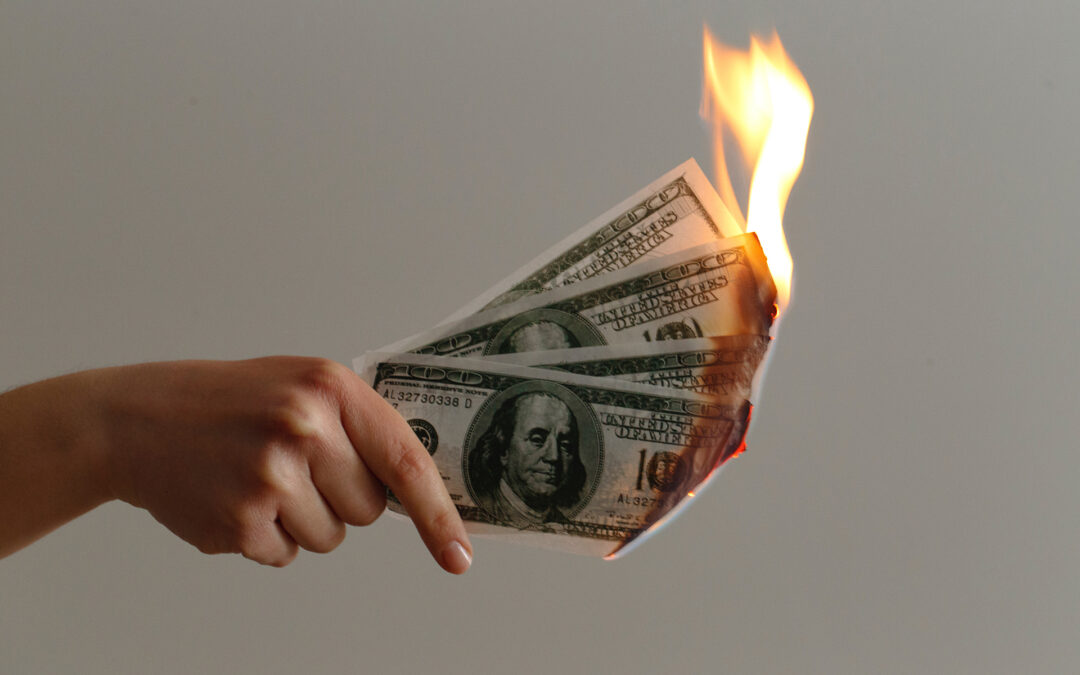My friend Jack’s finances and his life are out of control. He’s got $36,000 worth of credit-card debt and a mortgage that exceeds his monthly salary, his kids are in a private school he can’t afford, he drives a current-year luxury car, he drinks lattes seven days a week and eats out almost as often. He sees his life as normal, and he can’t understand why it feels so unmanageable.
Financial freedom is a result of effectively managing our finances, and the way we handle our finances is the way we handle our lives. Are you having difficulty managing your personal affairs? Do you feel lost and confused more often than you’d like? Do you feel like other people are in control of your life? Do you feel powerless? If your attention is glued to this page, I bet your money is also in a state of imbalance.
How do we get out of balance regarding our finances? By making poor choices over an extended period of time. It simply doesn’t happen overnight. We spend a little beyond our means and needs one day, then we do it again the next day. Before we know it, we’re in debt and can’t understand why.
What compels us to make poor choices? First, it’s our beliefs about money. Some of our beliefs about money include the following:
- “Money is the root of all evil.”
- “Money solves all problems.”
- “Once in debt, always in debt.”
- “Hard work gets you nowhere.”
- “Money can buy anything.”
- “Looking good is everything.”
- “We must keep up with the Joneses.”
Second, fear compels us to make poor choices. We feel inadequate and afraid of what people will think of us. We want to keep up with the Joneses and look a certain way to impress others. We want to have the biggest and best house on the block, send our kids to the most prestigious school, drive the most awesome vehicle, and lay claim to the most incredible array of techno-gadgets. Indeed, fear plays a major part in financial instability. And while at the moment it feels good to have these things, ultimately it’s hard to sustain that feeling when we’re saddled with debt, we can’t pay our bills, and our income doesn’t adequately cover our expenses.
What about you? When the topic of money comes up, are you uncomfortable? Do you think, “I wish they’d change the subject?” Do you get defensive? If so, this week is tailor-made for you.
How do we get past the belief system that obliges us to live irresponsibly? We take action and lots of it. Here are a few suggestions:
- Pay yourself first. Stash 10 percent of your paycheck away: just save it. Don’t spend it. Don’t make it a rainy day fund. Just save it. Some of you might think, “I can’t afford to save 10 percent.” Then save 5 percent or whatever you can. Just start somewhere. Think of how much change you have at the bottom of your purse or in your pockets. Think of how much money you leave lying around on the floor or in drawers. Think of how many lattes, Cokes, or packs of cigarettes you purchase. Not buying one four-dollar latte, seven days a week, for fifty-two weeks a year adds up. Do the math. You could put those little savings in a “No Latte Today” fund. It all adds up. Something is better than nothing, and it gets you in the habit of saving. Save what you can, but save something.
- Spend less. Just because it’s there doesn’t mean you should buy it. There are times when you need to practice restraint and not spend.
- Avoid debt. Not a difficult concept to grasp, but one that eludes many people. In our buy-now-pay-later society, we’re encouraged to amass debt at whatever cost. For example, credit-card companies tantalize graduate students with the promise of a quick fix before they are even capable of supporting themselves. And this strategic campaign is not just reserved for graduate students. Credit card companies send appealing invitations to students who are still in school. They learn to say “Charge it!” before they have a job. Spending beyond your income or when you have no income is a surefire way to financial insecurity, not financial freedom. Debt is not your friend and neither is the creditor.
Financial responsibility: this week, examine your behavior around money: how you spend it, why you spend so much of it, where you spend it, and what you need to do to manage your money and your life a little better.











